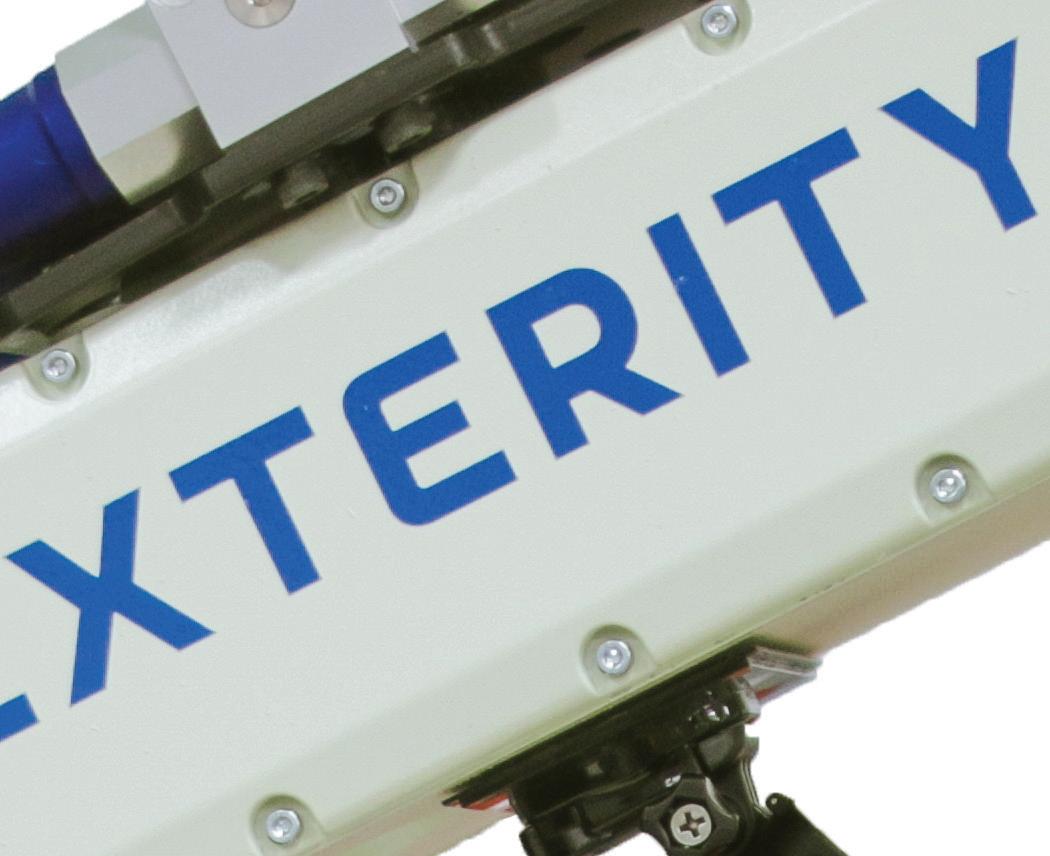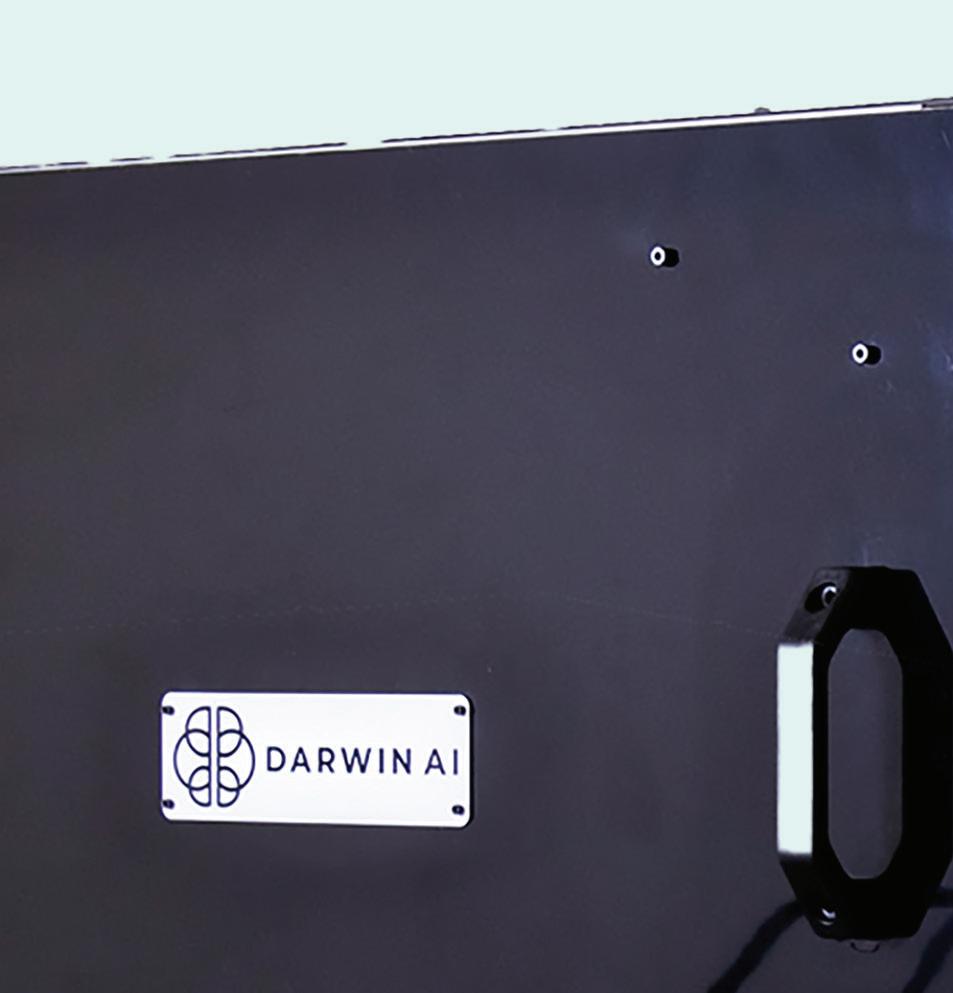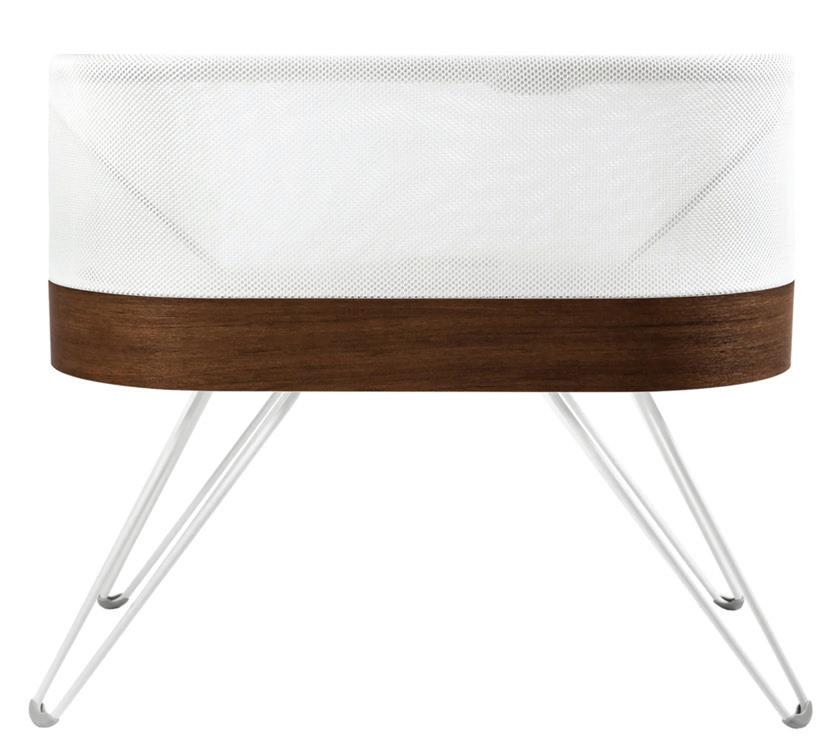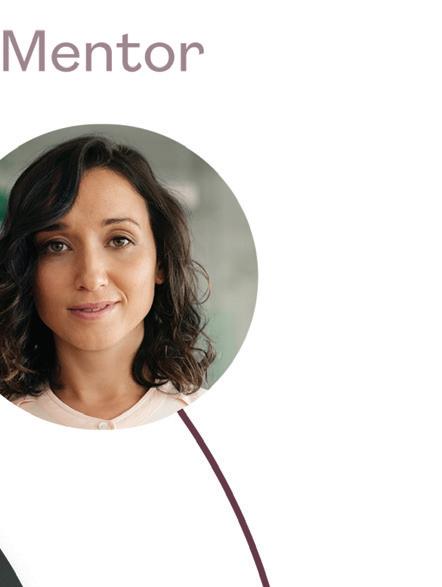

20 22
you’ve been paying attention, you’re well aware that there’s a lot that needs to change in the world—environmentally, socially, and all things in between.
The good news is that change is happening every day.
At Obvious, our mission is to build the future we wish existed. In this year’s World Positive Report, we are spotlighting the impact of companies building that future, today.
Because the time is now.

For us, and especially for entrepreneurs tackling these big challenges, there is no time other than the present. No cans to be kicked down the road. No chance of a better future without giving it our all today.
That starts with the climate—it touches every sector of the planet, and every day counts. In the pages that follow, you will find inspiring stories of startups transforming industrial systems of the global economy to be safer, more efficient, and carbon-free.
It continues with work to enable better, healthier lives for all. Read on for a deep dive into the impact companies are having by reimagining healthcare, food, and consumer goods to deliver everything from outcome-driven, personalized care to new consumer-wellness offerings.
Last, but certainly not least, we are seeking ways to empower people and businesses. Ahead you will find chronicles of companies reshaping financial services, insurance offerings, and work products that are giving customers and companies greater control over their financial health and success.

We certainly have our work cut out for us, but the solutions are out there. At Obvious Ventures, we work with entrepreneurs behind the scenes to help them on their quest to find, build, and bring solutions to market.
We are doggedly optimistic about the future our portfolio companies are creating, thanks to the hard work they are doing today. After reading this, we hope you will be, too.
The time is now.


MIXT
GUSTO

SUSTAINABLE SYSTEMS
The portfolio companies in Sustainable Systems are transforming the industrial systems of the global economy to make them safer, more efficient, and carbon-free.


DEXTERITY





























ROBOTS DELIVERING THE (BAKED) GOODS
Over the past five years—and especially during the pandemic— warehouses of all kinds have wrestled with labor shortages, exacerbated by high turnover rates and intense recruiting competition. Facing soaring consumer demand, one of the world’s largest consumer goods manufacturers turned to automation, only to find that traditional automation could not handle the variety and delicacy of the company’s products.
So the manufacturer went to Dexterity, asking the company to build a robot—with a footprint no larger than a person—that could select from over 10,000 unique individual baked goods, lift stacks of trays, and move loaded dollies to outbound staging areas. The manufacturer needed the robots deployed quickly and needed them to fulfill orders at a faster rate than experienced human operators with virtually no manual intervention.

FORUM MOBILITY


MOVING CARBON OUT OF THE DRAYAGE BUSINESS

The electrification of everything is coming to port cities near you, with the biggest opportunities being realized across the shortest distances.

THE SLEEPY CATEGORY IN NEED OF AN EV JOLT

Drayage is the essential first step in moving freight—typically shipping containers—the short distance between ports and warehouses, rail terminals, and truck yards. Diesel-powered 18-wheelers have fueled the drayage industry for decades, running “the first mile” in a long chain of heavy duty trucking that moves goods from ports to destinations nationwide.


These small distances add up. Globally, up to 95% of manufactured goods travel in a container at some point. In North America, there are more than 60 million drayage movements a year,






according to the Intermodal Association of North America. More than 13,000 Class 8 trucks operate in the combined ports of Los Angeles and Long Beach and more than 4,000 operate in the Port of Oakland, according to the 2019 California Air Resources Board (CARB) registry, and California is forecasted to have over 60,000 drayage vehicles by 2030, driven by rapid increases in demand for eCommerce goods.



FORUM MOBILITY
AS WE ALL KNOW BY NOW, ELECTRIFYING A MASSIVE INDUSTRY ISN’T AS SIMPLE AS FLIPPING A SWITCH.
This is where Forum Mobility comes in. Forum is enabling the electrification of the drayage market by both building EV infrastructure and providing EV heavy-duty trucks, enabling logistics operators to transition to EV fleets and enjoy a lower total cost of ownership than with diesel.
While it makes financial sense for drayage operators to go electric, fuel savings for local drayage could drive over $18,000 a year in savings per truck, according to CARB. It will also soon be mandatory.

California has the worst air quality in the nation and heavy-duty trucks are among the largest contributors.
Fifteen other states have signed a memorandum supporting the rapid expansion of Zero-Emission Vehicle, setting ZEV sales targets to 30% by 2030 and 100% by 2050.
California is setting even more aggressive targets: all Class-7 and Class-8 drayage trucks operating at intermodal seaports or rail yards must transition to full-zero emission by 2035.
THESE NEW REGULATIONS ARE ALREADY KICKING IN, AND HITTING HOME FOR DRAYAGE OPERATORS LIKE RUDY DIAZ, CEO OF HIGHT LOGISTICS.
Rudy’s business must convert to zero-emission trucks over the next decade, with some models (2009) having to convert in 2022 or face getting kicked off the port registry.


Forum Mobility was able to get Rudy’s business into five zero-emission trucks, allowing him to keep his business going and

deliver his goods environmentally. The change will remove 6,125,455 pounds of CO2 over the next ten years.

GROWING
PLANT PREFAB HAS BECOME A MAINSTAY IN THE WORLD POSITIVE REPORT,

and it’s easy to understand why. Plant Prefab’s products— beautiful, custom, accessible homes—are built significantly faster than site-based methods, with superior quality and less waste.











PLANT

SUPPLIER CODE OF ETHICS




The company has developed a supplier code of ethics, asking its significant suppliers to operate at a higher standard than industry averages. Plant Prefab now screens suppliers across areas, including corporate practices, environmental certifications, and compliance.



Having recently opened Plant Prefab’s second factory, and scaled its operations by more than 30% in 2021, Plant’s positive supply chain practices are poised to proliferate.






SPEEDING UP SEMICONDUCTOR DARWINAI







PRODUCTION
IT’S NO SECRET THAT THE SEMICONDUCTOR INDUSTRY HAS A PRODUCTION PROBLEM,

one that has impacted nearly every industry in the global economy. Component issues, long lead times, higher prices, and labor challenges are the main culprits.
Printed circuit boards—used in everything from appliances to medical devices—remain a primary production bottleneck. Why? Because inspecting the circuit boards is highly manual, and the labor shortage is aggravating the process.








DarwinAI is deploying a new visual quality inspection (VQI) approach, leveraging artificial intelligence to improve the speed, accuracy, and efficiency of quality control processes. Its solution is to reduce waste and costs by catching failures earlier in the production process while serving as a force multiplier for labor.

TRANSFORMATIVE TRUCKING

TRANSFORMATIVE
Sand in the gears of global supply chains has been increasing since 2020, but it had been seeping in long before. Nowhere has it been more prevalent than in the trucking industry. While the challenges are far-reaching, they are centered on one, critical constituent: the drivers. It doesn’t take much to understand why.
SKY-HIGH TURNOVER
Between 1995 and 2017, the trucking industry averaged a 94% annual driver turnover rate.
DECREASING PAY
Adjusted for inflation, a truck driver’s median salary was $110K a year in 1980. By 2021, it had plummeted by more than 50%, to $48K a year.
DIMINISHING UNION JOBS
In 1983, approximately 40% of truck drivers in the U.S. had jobs with a union contract. By 2020, the share had dropped to 10%.
EMPLOYEES NO MORE
Many trucking companies have abandoned employment models in favor of gig economy models, classifying today’s drivers as independent contractors and saddling many with debt as they struggle to cover the costs of their own equipment, gas, and more.



LONG HOURS, UNPAID TIME
Most truck drivers average 60 to 70 hours per week—not including wait times for the loading/ unloading of cargo, inspections, and cleaning —yet still aren’t paid overtime.
In June 2022, Mark Anderson, the president and CEO of United Road—one of the largest vehicle haulers in the country—stated: “We need to find the efficiencies where the truck driver is home at night. How do we make sure that the driver is only doing one or two stops, or only going 150 miles on a round trip?” He also claimed the sector lost more than 30% of its capacity because drivers were leaving the industry.


It’s no surprise that the team at aifleet saw an opportunity. The company simultaneously created a dramatically improved experience for drivers— offering better employment structure, more time at home, and more efficient routing through AI—and a reduction in CO2 emissions. While still early in their journey, the team at aifleet has so far delivered impressive numbers:
12%
LOW ATTRITION
aifleet has an annual attrition rate of 12% compared with an industry average of 99%.
18%
MORE DIVERSE DRIVERS
18% of aifleet’s drivers are female compared with the industry average of 7%.
MORE TIME AT HOME
100% of drivers receive guaranteed home time every weekend, giving them 130 days at home each year, more than double that of typical longhaul truck drivers, who average just 60.

HIGH NPS
aifleet’s net promoter score is 78 compared with an industry average of zero.
HIGHER PAY
aifleet drivers earned an average of $92k in 2022, 50% more than the industry average.

The most striking statistics may be those that speak to the company’s environmental impact: If all trucking fleets in North America operated with the same efficiency as aifleet, the company estimates:



The electric revolution is well underway, and along with all of the electric trucks and SUVs entering the market, there will soon be an electric RV to tow behind them.

From Winnebagos to #VanLife, RVs are a very American way to travel.
The problem is that no electric vehicle can maintain an acceptable range while towing a traditional RV.
Enter Lightship, poised to become the first all-electric towable travel trailer. Founded by alums of electric-vehicle manufacturers Tesla and Proterra, Lightship is ready to deliver a new form of electric freedom to the road, the campsite, and beyond.

HAYLEY CASHDOLLAR
HEAD OF MANUFACTURING, LIGHTSHIP

MOSAIC EMPOWERING SOLAR POWER
































CHANGE STARTS AT HOME.
Mosaic was built on the belief that every home plays a critical role in combating climate change.
Mosaic is the leading U.S. financing platform for solar and other energy-efficient home improvements, seeking to empower millions of people to make their homes cleaner, smarter, and more energy efficient. Its mission: 100% clean energy for all.

























































In October 2021, over 400,000 construction positions remained unfilled, the secondhighest level recorded since tracking began in 2000.
Structural shifts in the labor market—an aging workforce, demand for better jobs, stalled training programs, decreased net migration—mean the construction industry needs to do everything possible to maximize productivity, attract more workers, and take care of the ones they have.
Canvas is purpose-built for this moment, helping construction teams work more quickly, safely, and efficiently. The company has created a robotics solution to hanging drywall—one of the most dangerous jobs on construction sites—that is delivering results:

ENERVEE SMALL NUDGES BIG GHG REDUCTIONS





















When we imagine a world free of greenhouse gas (GHG) emissions, our minds race with visions of electrifi ed everything, renewable energy for all, and a food system based heavily on plants.
The data reveals a different story, one that unfolds with the everyday front-and-center: household refrigerators, dishwashers, and laundry machines.
We’re leaving most of the technical potential on the table, and millions of tons of GHGs are continuing to flood our atmosphere as a result. What’s more, in California over half of the GHG savings potential is associated with plug-in devices in low-income households.

LARGE
HOME
APPLIANCES
POWERED BY AN ORDINARY AC PLUG ARE RESPONSIBLE FOR ABOUT 10% OF RESIDENTIAL ELECTRIC CONSUMPTION IN CALIFORNIA
Large home appliances powered by an ordinary AC plug are responsible for about 75% of residential electric consumption in California (DNV GL Energy Insights USA, Inc. 2020) and up to two-thirds of residential electricity consumption nationally (2015 Residential Energy Consumption Survey, EIA 2018). However, the majority of appliances in use aren’t harnessing available energy-efficient technology.
Influencing the retail buying decisions of millions of consumers is therefore crucial to reducing our carbon output. Equally critical is ensuring that low-income households have access to energy-efficient products.
Enervee is stepping in to make this happen. Enervee works with utility companies to build consumer-facing, end-to-end marketplaces that offer information and incentives to help people choose more energy-efficient appliances.



































































































especially for low- and moderate-income households. Enervee market research conducted in September 2020 on 400 people with household incomes below $75,000 in California and below $100,000 in New York revealed that:




















































MAJOR STEPS FORWARD




























In 2021, the company took a major step forward with the launch of an integrated platform to help eliminate the psychological and financial barriers that prevent consumers from following through on their desire to buy energyefficient products.






















ENERVEE MARKETPLACE
Through the Enervee Marketplace, shoppers can see tailored product recommendations, energy bill savings estimates, and figures for total cost of ownership, all of which influence product choices. The platform also offers integrated Eco Financing on energy-efficient products to help those who can’t afford the up-front price.







To date, the program—first launched with SoCalGas customers in Southern California—has delivered impressive numbers, with 85% of Eco Financing
loans going to “underserved borrowers,” as defined by the GoGreen Home regulations, and users spending an average of nearly $1,400, meaning that people are able to finance major domestic appliances.
As the platform scales with more utilities, even greater impact is expected in the years ahead.
SINAI TECHNOLOGIES











































































































NET-ZERO CARBON








































































































































Companies around the world are committing to achieve net-zero carbon emissions. In 2015, hardly any companies had made this commitment. Today, according to Bloomberg, companies representing 70% of global GDP—including Apple, P&G, and General Motors—have pledged to reduce their greenhouse gas emissions to zero or net zero. All of these companies need help reaching their goals, and that’s where SINAI Technologies comes in.
SINAI’s decarbonization platform brings together complex emissions and financial data from across an organization. Once a company has this carbon inventory in hand, SINAI helps it find the most cost-effective path forward by modeling out nearly 700 different mitigation options. The result is the world’s first “decarbonization intelligence” platform—a platform that is already helping companies in 18 industries and 60 countries take meaningful steps toward attaining net-zero commitments.
HEALTHY LIVING
Healthy Living companies are reimagining healthcare, food, and consumer goods in ways that enable a healthier lifestyle for all, from outcome-driven personalized care to new consumer-wellness offerings.



TOMORROW HEALTH BETTER AT-HOME CARE TODAY
Tomorrow Health enables exceptional healthcare for patients and their families in the place they want to be most: home. And home is increasingly where Americans are facing their biggest healthcare challenges.

and 91% of health plans are actively seeking programs to move care to the home. However, the lack of infrastructure required to effectively connect medical providers, home-based care suppliers, patients, and payors has patient care falling between the cracks. Home-based care is currently fragmented, confusing, and expensive, costing the healthcare system billions of dollars annually.
ONE IN FOUR AMERICANS TODAY REQUIRE HOMEBASED CARE CARE PROVIDED IN THE HOME:

of the total $3.1 trillion healthcare spend, according to JAMA. of patients report difficulty getting prescriptions.
unique providers of equipment, services, and supplies, yet the system lacks uniform standards and infrastructure.
patients report readmissions, medical complications, or emergency care due to delays in access to home-based care, all of which drive up costs.

Tomorrow Health addresses these challenges with a marketplace solution that seamlessly connects everyone involved, allowing quality home-based care to become a reality for more people. The technology-driven matching process considers quality, specialization, insurance coverage, and geography to pair patients with the appropriate supplier from more than 40,000 products and services.



AND THE COMPANY IS DELIVERING FOR PATIENTS, WITH DEMONSTRABLE OUTCOMES.




ACCESS FOR ALL INATO
With clinical trials, access for patients and efficacy for sponsors is the name of the game, and Inato is changing access for the better.
Historically, the top 5% of research sites have accounted for about 70% of trials, excluding a majority of the population from accessing medical innovation. Inato is unlocking access with




its global platform, which covers over 70 disease areas and brings research to patients where they live: in more than 45 countries across 1,600 sites.











He was a 91-year-old man with congestive heart failure, hypertension, and stage 4 kidney disease. He lived independently with his wife, who had dementia. A home health aide assisted them three days a week. But the man was exhibiting worsening shortness of breath and seemed anxious and depressed.

The patient could have been destined for the ER. But that was just the move ConcertoCare hoped to avoid. The average ER visit in the United States costs $2,200, and the average hospitalization for lung disease costs $18,000. In keeping with its mission to deliver primary and complex care to seniors and other vulnerable adults where they are best served—in their homes—ConcertoCare found another way.
ConcertoCare increased the frequency of health worker visits, got the patient on an inhaler, and engaged his family in discussions about starting him on antidepressants, which helped improve his mood. The man was able to build a strong therapeutic relationship with the care team, which is a large part of how the ConcertoCare model continues to make a meaningful difference for patients and their family members.
CONCERTOCARE
THERE’S NO PLACE LIKE HOME
Age all 76 million boomers will be by 2030
Share of U.S. healthcare spending boomers account for
Boomers will not have adult children to help them when independent living becomes difficult or impossible

DISCOVERING SMALL MOLECULE NEEDLES IN THE HAYSTACK
ANAGENEX SMALL MOLECULE MEDICINES
Small molecule medicines— think everything from aspirin to Paxlovid, the antiviral used to combat COVID—are largely considered the best way to get treatment to the largest number of people, compared with injectables and other approaches. However, discovering them is remarkably difficult: traditional approaches to testing potential compounds are akin to searching for a needle in a haystack.
Anagenex is using machine learning to radically accelerate that search. Using massive biochemical tools such as DNA Encoded Libraries (DELs) and Affinity Selected Mass Spectrometry (ASMS), Anagenex tests billions of custom synthesized compounds to identify target proteins, those believed to play a role in disease. For each target, Anagenex runs dozens of more detailed
experiments and feeds the results to its artificial intelligence network, which learns which compounds are promising and helps design further tests. And the cycle repeats, allowing Anagenex to test
In the past year,
ANAGENEX SCIENTISTS TESTED COMPOUNDS FOR 50 DIFFERENT DISEASES, INCLUDING CANCER, CARDIOVASCULAR DISEASE, AND INFLAMMATION, AND FOUND NEW POTENTIAL TREATMENTS TO SEVERAL, INCLUDING SOME THAT WERE PREVIOUSLY CONSIDERED UNTREATABLE WITH DRUGS.



ITERATIVE HEALTH BRINGING AI TO THE GI
Up to 70 million Americans a year are affected by gastrointestinal (GI) diseases like inflammatory bowel disease, gastroesophageal reflux disease, and irritable bowel syndrome, at an annual cost of $136 billion. Colorectal cancer is the second leading cause of cancer-related death in the United States with $20 billion spent on screening and 150,000 cases diagnosed every year.
Iterative Health was created to do just that, by bringing artificial intelligence-based precision medicine to gastroenterology with the goal of establishing a new standard of care for the detection and treatment of GI diseases. Its AI and computer vision technologies are designed to improve the accuracy and consistency of endoscopy readings. Current endoscopic procedures are fairly subjective, leading to wide variations in interpretation and treatment decisions—25% of polyps are missed by physicians, for instance. SKOUT, the company’s automated polyp detection tool, is an AI-driven medical device that aims to improve and standardize insights from endoscopic videos. It is expected to clear FDA review soon.
ALL THIS TO SAY, IT’S REALLY IMPORTANT TO KNOW WHAT’S GOING ON IN OUR GI TRACTS.
HAPPIEST
BABY

THE SNOO
SLEEP WHEN THE BABY SLEEPS
Sleep when the baby sleeps, as the old adage goes. But what happens when the baby doesn’t sleep? Newborns are notoriously fussy, as any new parent knows. That’s where the SNOO comes in.
Founded by child development expert Dr. Harvey Karp, Happiest Baby is focused on helping
From helping prevent postpartum depression in new mothers to soothing newborns in hospitals, the SNOO continues to have tremendous impact:
+5.5 000%
parents raise healthy, happy children, and the SNOO is its signature product. The SNOO is a responsive bassinet that calms fussy or crying infants with a rocking motion and white noise, letting parents catch up on rest or whatever else they need to do.













Hours SNOO saves per shift, hospital clinicians report
9 out of 10 clinicians surveyed agree the SNOO enhances the quality of infant care Percentage of clinicians who report that the SNOO helps keep babies on their backs and helps prevent SIDS
HEALING MINDS MUSHROOMS











MINDS WITH
THE UNITED STATES IS IN THE MIDST OF A MENTAL HEALTH CRISIS.
Americans of all ages report being in their worst mental state in years. One in fi ve adults are suffering from a mental illness, according to a recent U.S. Census survey, with 47% reporting anxiety symptoms and 39% reporting depression.
Despite the enormity of the problem, fewer than half of people with a mental disorder are being treated. Even those who are able to navigate the costly and labyrinthine mental healthcare system don’t always get positive results.
It’s clear that we need new solutions, and MycoMedica is creating some. MycoMedica is a new life sciences company that is developing fungi-based therapeutic drugs to help people live healthier, better lives. Building on more than four decades of research, the company uses a novel combination of ingredients—called the Stamets Stack—to unlock the potential of the mushroom compound psilocybin to prevent and treat psychiatric and neurological disorders.
Psychedelics are currently undergoing a renaissance, moving from the fringes to a billiondollar market. Psilocybin is a big part of this. More than 90 institutions are currently engaged in clinical studies involving psilocybin, including Harvard, Stanford, Johns Hopkins, and Columbia universities, and the Veterans Affairs Association. Studies find that psilocybin is remarkably good at alleviating symptoms of anxiety and depression, even in people who don’t respond to other medications.


MORE THAN 30 UNIVERSITIES AND INSTITUTIONS ARE CURRENTLY ENGAGED IN CLINICAL STUDIES
INVOLVING PSILOCYBIN.
MYCOMEDICA IS MADE UP OF A POWERFUL TEAM OF EXPERTS.
It’s led by the world-renowned mycologist, speaker, author, medical researcher, and entrepreneur Paul Stamets. Stamets has spent four decades researching the habitats and the medicinal use and production of fungi. He has received numerous awards, including the Invention Ambassador from the American Association for the Advancement of Science (AAAS), and has been awarded numerous patents in the field of mycology. He has also written six books on mushrooms and starred in the recent documentary “Fantastic Fungi.”



He is joined at MycoMedica by co-founders Dr. Pamela Kryskow, M.D., and Dr. Sanjay Dubé, M.D., who bring years of experience in patient care and drug research and development. Dr. Kryskow and Dr. Dubé lead MycoMedica’s clinical research, which is centered on microdosing psilocybin. The team is rounded out by co-founder Tad Buchanan, who brings 25 years of venture capital and private equity investment experience to the mycological mix.

WOMANESS
UNPAUSING MENOPAUSE AWARENESS
IT’S SOMETHING ALL WOMEN WILL GO THROUGH.
of women feel prepared for menopause



By 2025, over 1 billion women worldwide will be experiencing menopause—the natural decline in reproductive hormones that typically occurs in a woman’s 40s or 50s. These biological changes affect women’s heart health, bone health, and mental health, yet the lack of education and awareness around menopause is so pronounced that only one-third of women feel prepared for menopause; furthermore, the majority don’t have conversations with their doctor about menopause until they are already experiencing it, a study by Womaness found.

Womaness offers a full suite of over-the-counter products to help women who are experiencing the most common symptoms of menopause. Womaness is also committed to empowering and educating women on their menopause journey.





Womaness found that there is still much work to do to help women feel informed and prepared for this important stage of life. Its study found that most women are uninformed about the breadth of menopause symptoms. While a high percentage of women (88%) knew about common symptoms like difficulty sleeping, fewer than 40% knew about other important symptoms, such as heart disease (30%) and dental issues (38%).
FEWER THAN
0 0%
of women know about other important menopause symptoms, such as heart disease and dental issues
WRITING THE SCIENCE ON DIABETES REVERSAL AND REMISSION
Another year, another landmark study for Virta Health as it writes the science on diabetes reversal and remission. The company recently released preliminary results of a 5-year clinical trial and a 2-year study conducted in partnership with the U.S. Department of Veterans Affairs. The work shows an extraordinary impact on long-lasting blood sugar reduction, weight loss, and medication reduction or elimination.
Diabetes reversal & remission: 33% of patients completing 5 years achieved sub-diabetic blood
sugar levels and no medication, excluding metformin (reversal); 20% of patients completing 5 years achieved diabetes remission, meaning they had sub-diabetic blood sugar levels without any diabetes medications for at least 3 months.
Medication de-prescription: Total diabetes prescriptions were reduced by ~50%; 50% who started on insulin no longer needed it.
Weight loss: Average weight loss of 7.6%, exceeding the 5% benchmark for clinically significant weight loss.
ACCESS GRANTED GALILEO






























Galileo is a modern medical group designed to manage today’s diverse and complex populations.









Its next-generation delivery model is led by expert care providers and a 24/7 technology platform that ensures synchronous primary and specialty care, accurate patient records, and continuous communication between patients and doctors.


With a focus on improving access for the underserved, Galileo has launched a virtual primary and multispecialty care partnership with MVP healthcare for Medicaid members in New York.































00%

Share of Medicaid New York members provided with 24/7 virtual PCP














06%











Share of Medicaid patients kept out of ER and urgent care
00%
Share of chronic cases that received streamlined care
GOING
One of the ways it does this is by enabling global remote access to clinical trials regardless of a patient’s location, income, or race. And there has been no time like the pandemic to highlight the need for remotely accessible clinical trials through Medable’s platform.










Over the course of the pandemic, Medable expanded access to more than 1 million participants across 60 countries and in over 120 languages, fast-tracking more than 300 clinical studies, including some on COVID-19 vaccines and treatment.















MEDABLE THE POWER












LIVES.






John, a technical project manager at Medable, knows this because he participated in one himself.
Some 2,500 babies are born each year in the United States with cystic fibrosis. Three decades ago, John was one of them. Cystic fibrosis is a chronic, progressive disease affecting the cells responsible








for producing mucus and sweat. It causes persistent lung infections and limits the ability to breathe. There is no cure.




John, now 30, grew up being told that he shouldn’t expect to live past high school. He defied those odds, and even became an athlete, playing Division I ice hockey in college. After graduation, John started thinking about where he could make an impact. The answer was clear: the healthcare industry.



JOHN WALTON KNOWS FIRSTHAND THE POWER THAT CLINICAL TRIALS HAVE TO SAVE PEOPLE’S
OF ONE




“Within an hour, I started to feel my body change,” he recalls. When the clinical trial ended, John was able to obtain a prescription for the drug, which he now takes daily.
In the meantime, John landed a job at Medable. The platform’s focus on decentralizing clinical trials has a special resonance for John.
In 2019, John had the opportunity to participate in a clinical trial for the drug Trikafta through the University of Cincinnati. After receiving his first dose of the gene therapy medication, he felt a difference almost immediately. The saliva in his mouth felt different, his lungs began to clear up.

THE HEALTH SPACE IS SOMETHING I’VE RELIED UPON MY WHOLE LIFE. IT’S SOMETHING THAT I COULD WAKE UP TO AND FEEL MOTIVATED BY DAY AFTER DAY.
CLINICAL TRIALS TAKE YEARS. WHAT WE ARE TRYING TO DO IS CUT DOWN ON THAT PROCESS AND HAVE THESE THERAPIES RELEASED FASTER. FOR OTHER PATIENTS LIKE MYSELF, WHO ARE WAITING YEARS AND YEARS FOR THE NEXT GENERATION OF MEDICAL ADVANCEMENTS TO BE MADE AVAILABLE TO THE PUBLIC, IF WE ARE ABLE TO CUT TIME OFF THAT PROCESS, WE ARE TRANSFORMING PEOPLE’S LIVES FOR THE BETTER.
NUE LIFE BREATHING NEW LIFE INTO DEPRESSION TREATMENT







Nue Life is a next-generation wellness company built on the belief that psychedelics can create lasting change.


Nue Life offers at-home oral ketamine therapy. Synthesized in 1962, ketamine is an FDA-approved drug shown to treat depression, anxiety, PTSD, and other conditions. Ketamine therapy is gaining traction at the same time that our mental health crisis is worsening.





































Nue Life also studied the outcomes of 664 patients suffering from treatmentresistant depression. The results were impressive:































DEVOTED TO QUALITY CARE DEVOTED HEALTH
Devoted Health’s team cares for its members like family. Rooted in this philosophy, the company launched a new set of programs in 2021 to more closely support members with their specific health needs, with exciting results.








PARALLEL LEARNING






















































Chase was an 11-year-old boy who was having problems organizing and planning. He had a hard time keeping track of his 6th grade assignments, and struggled to focus, unless it was on something he was really interested in.





































































































































































Chase was just the kind of student Parallel Learning was created to help. Parallel’s mission is to ensure all students, including those who think and learn a bit differently, are given the opportunity to thrive. The team at Parallel believes anyone can overcome learning differences and master their mind.






























































































































For Chase, that meant receiving executive functioning coaching twice a month. The sessions helped Chase focus on goals and establish routines.



















































INCREASE IN


THE ABILITY TO INDEPENDENTLY MANAGE ROUTINES

NECTAR LIFE SCIENCES
PUTTING AN END TO ALLERGIES

Allergies. If it seems like everyone has them, it’s because they practically do. Allergies are the #1 chronic condition in the United States, affecting 1 out of 3 Americans, with a growth rate that is twice that of diabetes. An estimated 120 million Americans suffer from allergies. Yet treatment leaves much to be desired.
Most allergy sufferers treat their symptoms with over-thecounter or prescription medicine. A small percent pursue immunotherapy in the form of allergy shots, which train the immune system not to overreact. But getting allergy shots is so inconvenient that 89% of people whose providers recommend them decline or drop out of treatment.
NECTAR AIMS TO CHANGE ALL OF THIS BY BRINGING ORAL IMMUNOTHERAPY TO ALLERGY SUFFERERS.

Oral therapy provides the same boost to the immune system as shots, but it comes in liquid drops that patients can take at home. Furthermore, Nectar’s direct-to-consumer telehealth platform guides patients from allergy testing to personalized treatment, bringing relief to those in need.























NECTAR LIFE SCIENCES WE WANT TO BECOME THE WORLD’S EXPERTS IN

KEN CHAHINE

CO-FOUNDER AND CEO, NECTAR LIFE SCIENCES
WE’RE TALKING ABOUT THE END OF ALLERGIES.
PEOPLE POWER
The companies we group under People Power are reshaping financial services, insurance offerings, and work-productivity systems to give individuals and small businesses the tools for financial health and success.


Hedvig is an insurance company built on the belief that its members should be able to bounce back from loss effortlessly. Instead of focusing on playing it safe, Hedvig encourages people to live their lives to the fullest. Its business model is aligned with its mission: Hedvig takes a flat fee for its services, and the rest goes to claims coverage. Anything left over goes to charity.






TURNOVER IN THE RESTAURANT INDUSTRY
is at an all-time high, at 75%; 51% of restaurant operators say staffing is a top challenge to success, and 35% say training staff is a top challenge.
Despite these trends, Mixt drew from the ranks of its restaurant operations staff and filled 69% of open leadership positions with existing team members, thanks to a robust leadership training and mentor program. The company’s dedication to its team is matched only by its mission to offer only the freshest, locally sourced ingredients in its salads, sandwiches, and grain bowls.








































































WHEN WAR BROKE OUT IN UKRAINE
in February 2022, many feared that Russia would continue to deploy aggressive cyber warfare tactics against Ukraine, as it had done in the lead-up to the invasion. Such malware attacks often lead to spillover effects on organizations that were not the original target, including businesses that have only limited IT networks in the area and consider themselves safe.
As warnings of the invasion ramped up, Corvus used its proprietary IT scanning technology to closely monitor the level of exposure to its cyber insurance policyholders in Ukraine, Russia, and Belarus.
When the war escalated, Corvus reached out to policyholders and proactively recommended that the organizations segment their environments or move services outside the high-risk countries.
After implementing this strategy, Corvus saw a material reduction in exposure among its policyholders that increased with each month. Many of its customers took quick action to re-host or decommission their infrastructure, resulting in a full 50% reduction in direct IT exposure to the war in Ukraine among Corvus policyholders.*





























NO DIGITAL INFRASTRUCTURE IS EVER IMMUNE FROM ATTACK AS LONG AS IT’S CONNECTED TO THE WEB.









In this case, Corvus proactively helped a number of organizations address an acute and serious risk, and its customers were safer as a result.

00.3%



































00%

EXPOSURE REDUCTION IN MARCH EXPOSURE REDUCTION IN APRIL
*For this finding Corvus developed a list of all policyholders with IT infrastructure hosted in Ukraine, Russia, and Belarus at any time from October to December of 2021, and compared the exposure of the same list each month thereafter.


















Now serving over 200,000 businesses, Gusto processes hundreds of billions of dollars of payroll and provides employee benefi ts—medical insurance, HR and compliance support, fi nancial benefi ts like 401(k)s and 529 plans, and more—all while helping companies create incredible work places.






The company is also writing the book on diversity reporting, starting by evaluating itself in its inaugural RISE Report. Gusto’s RISE strategy aims to succeed in four key areas:











REPRESENTATION
The workforce through the entire employee life cycle—attracting, inviting, hiring, onboarding, engagement, and retention—reflects the demographics of the U.S. at all levels of the company and across all functions and teams.

INCLUSION
Every employee feels a sense of belonging. Employees foster allyship and build community, connection, and coalitions. Leaders at every level understand why inclusion and diversity matters and amplify the message so it becomes embedded in the organization.
SOCIAL IMPACT EQUITY

The company leverages the mission and purpose of the platform using its position and capabilities to promote social impact, do meaningful work, make a difference in society, and plant seeds to positively impact others.
The company culture and structure produce equitable opportunities for everyone, decreasing bias and creating a level playing field.
IN GUSTO’S OWN





































WORDS:















Our inaugural RISE report isn’t just a progress report. It’s a promise to do more and do better. When it comes to diversity, equity, and inclusion efforts, the biggest trap any company can fall into is that the work is going to be done. This work is never done—there’s no arrival or destination point. There’s no checkered flag or box to check. This work is ongoing. And ultimately that’s what drives us—to keep going, keep evolving, keep striving for better despite hurdles and challenges along the way.



OVERALL











LTSE












Building a company for the long term is hardest for the newest companies, where a singular focus on daily survival often dominates the conversation. Knowing where to start in the short term, not to mention how to get there with a long-term mindset, can be the toughest task.

The Long-Term Stock Exchange, a platform to build capital market infrastructure for the next generation of iconic companies, is easing the friction around long-term thinking—and doing. Through its newly launched Equity Resource Hub, LTSE has aggregated an extraordinary set of essential guides, templates, and insights from industry leaders to help the next generation of impactful startups.




409A valuations, cap tables, stock options, DE&I, and so much more—the topics include anything and everything a startup CEO and executive team need now to build for the future.


INCREDIBLE




















NURSES WHEN MOST


While we often see statistics about labor shortages, everywhere from software engineering to education, nowhere are the labor shortages felt more acutely than in healthcare. The U.S. Department of Health and Human Services and the Bureau of Labor Statistics estimate that by 2030,

not including the nearly 200,000 positions left open every year from now until 2029 by nurses expected to retire or leave the profession.


The industry needs a better retention and recruitment strategy, and Incredible Health is leading the charge—both shining a light on the challenges and building solutions.

INCREDIBLE





In March 2022, Incredible Health analyzed its proprietary hiring and survey data of over 400,000 nurses and found that OVER ONE-THIRD (34%) SAID

Of those planning to leave their jobs, 32% said they plan to leave the field altogether.

Five months earlier, the company had launched The Incredible Health Retention Suite, a set of hiring tools that helps nurses find permanent jobs they love and helps hospitals retain the nurses already on staff. The suite includes mental health tools, mobile-optimized onboarding, and more. Incredible was already outperforming with its placements:






IT IS “VERY LIKELY” THEY WILL QUIT THEIR JOB BY THE END OF 2022, WITH 44% CITING BURNOUT AND A HIGH-STRESS ENVIRONMENT.
To address this, Incredible Health rolled out The New Nurse Graduate Suite in June 2022 to help nurses at the beginning of their career. This free suite of products includes an expansion of the Incredible Health hiring marketplace with job matching to support new graduate nurses; individualized career support; a personalized advice platform; free continuing education unit offerings; and salary estimator tools.






































































more nurses we’re able to keep in the field through Incredible Health’s work, the more adequately staffed those hospitals will be— delivering better health outcomes for us all.

OVER 60% OF U.S. NEWS & WORLD REPORT’S BEST HOSPITALS NOW WORK WITH INCREDIBLE HEALTH TO FIND AND RETAIN NURSES.
The
OF NEW GRADUATES SAY THEY PLAN TO LEAVE THE FIELD BEFORE RETIREMENT DUE TO BURNOUT, STAFF SHORTAGES, AND OTHER ISSUES.
The challenge with new nurses is equally acute.
Empowering nurses with tools designed specifically for them to find a career that exceeds their wants and needs is critical to retaining this desperately needed talent within the field.



IMAN ABUZEID




CO-FOUNDER AND CEO, INCREDIBLE HEALTH



A GRAND UNIFICATION
2X
FREQUENCY OF HOSPITAL STAYS FOR LOW-WAGE WORKERS
75%
HEALTH INSURANCE USERS CONCERNED ABOUT MEDICAL BILLS
Our personal and financial health are more inextricably linked than we realize. In fact, multiple studies have found that an individual’s health and finances move in tandem: As socioeconomic status declines or improves, so does one’s health status.
The problem cuts across all populations in the United States, including those with health insurance: low-wage workers are admitted to the hospital twice as frequently as high-wage earners; 75% of people with health insurance are concerned about financial hardship due to medical bills; and 15% of the average retiree’s annual expenses will be used for healthcarerelated expenses.
Lynx is on a mission to unchain health and financial outcomes. In the near future, companies will be able to embed customizable health-fintech solutions in their customer experience to improve affordability, drive health engagement, and enhance financial security. And consumers will be able to save and invest to pay medical expenses, earn money for healthy behaviors, securely pay providers with one click, and view all medical bills in one place.
OF PERSONAL AND FINANCIAL HEALTH








































TORCH


When high performers talk about the keys to success, they often refer to people—coaches, mentors and managers—who changed the trajectory of their careers.
Torch uses the power of trusted relationships to help people grow. By combining coaching, mentoring, and collaborative learning, Torch enables companies to design, manage, and measure programs that drive their people—and ultimately, their organization—to succeed.
THREE COMMONLY CITED REASONS FOR THE TRANSFORMATIVE POWER OF TRUSTED PERSONAL RELATIONSHIPS:
PSYCHOLOGICAL SAFETY
Psychological safety allows people to feel comfortable being vulnerable so they can get to the heart of what needs to change.
CLEAR STRUCTURE

Clear structure allows people to unambiguously understand what, when, where, and how they need to change.
ACCOUNTABILITY
Accountability means someone else is counting on the person to follow through on their promises.
67%-90%


When an individual grows by working with a coach or mentor, one way to measure that development is through behavior change. Although much behavior change takes time, some growth is almost immediately apparent.





Torch research shows that after a single month using the Torch platform, colleagues rate progress as “amazing, major, or moderate” for 67% of the goals set at the start of a coaching engagement. After ten months, colleagues give the same ratings to 90% of the goals set.



OF GOALS SET IN A 10-MONTH ENGAGEMENT WERE RATED FAVORABLY
Torch research also finds that the coaching process compresses the time it would otherwise take people— a decade, on average—to become more perceptive and self-aware.
The impact on individuals adds up for the organization. Data from the Torch platform shows that employees who have had Torch coaching have a 38% higher retention rate than the uncoached cohort, and are part of teams that are 15% more engaged than the uncoached cohort.

In 2014, we founded Obvious Ventures on the simple belief that the most valuable companies of our time would be the ones solving humanity’s biggest problems. Three years later, we created the World Positive Term Sheet to align founders and investors around their company’s social and environmental goals. The response was overwhelmingly positive and helped shine a light on how important it is to align the values of founders and investors.
Over the last five years we have been fortunate to see some of our portfolio companies grow from early stage investments all the way to public-market listings. During that journey, we’ve seen increasing excitement around, and acceptance of, environmental, social, and governance (ESG) practices in investing, with the meaning behind those three words changing substantially across investment stages.
In public markets, ESG criteria are used in risk analysis and reporting, and as a filter when building mutual funds and exchange-traded funds (ETFs). In growth equity, meaningful ESG measurement occurs when late-stage companies have measurable greenhouse gas emissions or diversity metrics across their lines of business. In contrast, ESG for early stage venture capital is largely undefined, with the language of Venture ESG still being written.
This article is our effort to open-source our approach to ESG in venture investing. In our eight years of world-positive investing at Obvious, we have tested various approaches that have informed and refined our lens. Our key findings follow.
ESG
01 VALUES ALIGNMENT BETWEEN FOUNDERS & INVESTORS MATTERS
Founders light up when we ask them about their purpose, their values, and their North Star—why they are building their startup. Our CEOs consistently tell us that the why matters—it focuses their day-to-day operations and supercharges their team recruiting and retention.
Dr. Iman Abuzeid, co-founder and CEO of Incredible Health, reflected on the importance of mission and purpose in a 2018 interview:
“Before the money was in the bank [from Obvious Ventures], James [Joaquin] asked us to write down our values. I thought it was going to be a trivial exercise, but it turned out to be one of the most meaningful things we’ve ever done. The World Positive Term Sheet was part of it.”
That inquiry around purpose and impact, which began with the World Positive Term Sheet, has evolved into our ESG Intention framework, detailed here.
03
ESG MEASUREMENT IS UNSUITABLE FOR EARLY STAGE STARTUPS
Before recommending an ESG assessment for our portfolio, we take it ourselves. We learned with the B Impact Assessment that the majority of questions simply don’t apply to a startup with fewer than 10 employees. This is understandable given that the ESG field was first developed for public markets and that early stage startups often don’t have a product, service, or mature enough organization to assess.
At Obvious, we invest in companies where positive environmental and/or social benefits are directly associated with their core business and not just their second or third-order effects. At the early stages, when the company is often pre-revenue, it is fundamentally too early to measure the realworld impact of future products or services.
But doesn’t Obvious perform ESG measurement? Yes, of course. We publish our award-winning World Positive Report at the end of each year. In this report, we highlight our portfolio companies using bespoke storytelling to showcase their impact in ways that match their business and their industry.
In many ways this is the opposite of an ESG frame work, which tries to fit all companies into a single rubric of measurement. Most importantly, we do the creation work ourselves to celebrate, not burden, our hardworking founders.
ESG IS A JOURNEY THAT STARTS WITH INTENTION
For early stage venture capital, we believe the ESG lens begins with one word: intention. As companies grow, they naturally morph into a business with measurable environmental, social, and governance impact, and they can deploy ESG measurement frameworks at that point. Some will make it all the way to public markets, hopefully with strong governance and reporting via their listing on the Long Term Stock Exchange.
At the beginning, however, a company’s founders are focused on the why and the how. At Obvious, understanding that intention is our way of forecasting the future environmental and social benefits of the company
Here’s how we do it.
ESG EVALUATION
IN OUR DUE DILIGENCE PROCESS, WE FOCUS ON NINE AREAS OF INQUIRY IN OUR INTERNAL EVALUATION OF ESG
GREENHOUSE GAS REDUCTION
We evaluate how the company’s products or services will reduce, replace, or remove greenhouse gas emissions, including carbon dioxide, methane, nitrous oxide, and ozone. This spans a range of climate tech, from renewable energy production to carbon capture.
RESOURCE USE REDUCTION
We evaluate how the company will reduce the resources needed to make and distribute its products and services. For example, we analyze if the manufacturing process is efficient, production is local, materials are upcycled, and high quality is controlled.
POLLUTION / TOXICITY REDUCTION
We evaluate how the company will materially reduce or eliminate pollution and toxic outputs; this includes new manufacturing processes and new material science.
IMPROVE HUMAN PHYSICAL & MENTAL HEALTH
We evaluate how the company will improve people’s physical and mental health in ways that drive better health outcomes at lower costs for patients. We also consider improved safety in the workplace and the home.
ENVIRONMENTAL SOCIAL GOVERNANCE
TEAM & BOARD DIVERSITY
We evaluate both the current level of diversity in the company’s leadership team, as well as the company’s specific plans to increase team and board diversity in the near future.
IMPROVE EMPLOYEE DEVELOPMENT & JOB CREATION
We evaluate how the company will develop employee skill sets, create new employment opportunities (beyond positions within the company), and/or provide meaningful assistance to small businesses.
IMPROVE FINANCIAL SECURITY & SAFETY NETS
We evaluate how the company will improve access and affordability of essential financial services; this includes financial planning, savings, and lending, as well as safety nets such as insurance.
ALL STAKEHOLDER INCLUSION
We evaluate how the company delivers tangible value to all stakeholders, including employees, supply chain partners, and the local communities where it operates.
INVESTOR OVERSIGHT
We evaluate the checks and balances provided by investors and board members. Where applicable, we utilize our board role to provide oversight and monitor progress on ESG goals.
ESG TERM SHEET LANGUAGE
At Obvious, we’ve made ESG intentionality a standard part of every term sheet we issue by including the following language:
Obvious is committed to its environmental, social, and governance (ESG) goals. In accepting an investment from Obvious, the Company commits to working with Obvious to develop appropriate ESG goals and policies consistent with our dedication to these values and appropriate for the Company.
Our goal is to align with our founders as early as possible in the investment process around a shared goal of integrating ESG practices into the DNA of the startup. At the same time, we are careful to not be overly prescriptive; the timing and implementation of ESG policies can vary depending on the stage of the startup and the team resources available.
As an active member of the National Venture Capital Association (NVCA), we are also working with the association’s legal advisory board to consider inclusion of an ESG paragraph, similar to the one above, in a future version of the NVCA Model Term Sheet.
ESG MONITORING
After we have successfully identified values alignment with the startup founders and ESG intention in the core business and then purchased shares to become an investor, that’s when our real ESG work begins.
Starting with the ESG Term Sheet, our goal is to partner with our portfolio companies to build the right ESG systems at the right stage of the business. As board members, we try to regularly evaluate progress toward ESG goals at the board level. We encourage founders to create an ESG policy early in the life of a startup. And throughout this journey, we never forget the why—to build transformative companies that create solutions to humanity’s biggest problems. Together we can create long-term value for both shareholders and society.
Certified B Corporations are businesses that meet the highest standards of verified social and environmental performance, public transparency, and legal accountability to balance profit and purpose. B Corps are accelerating a global culture shift to redefine success in business and build a more inclusive and sustainable economy.
In September 2017, Obvious became one of the first venture firms in the world to become a Certified B Corporation. We perform biannual audits to ensure we’re putting our values into practice across the board: with our employees, our corporate governance, our partners, our communities, and our environment.

Editors & Writers: Emily Brady & Gabriel Kleinman
Copy Editor: Karen Aho
Designed by: Pineapple, San Francisco
Photography: Caroline Bennett / 27 James Albert / 83 Kayana Szymczak / 95
© 2022, Obvious Management Services, LLC
Published by Obvious Management Services, LLC 190 Pacific Ave San Francisco, CA 94111
www.obvious.com/wpr2022
All rights reserved.
Obvious World Positive Report 2022 by Obvious Management Services LLC is licensed under CC BY-ND 4.0. To view a copy of this license, visit https://creativecommons.org/licenses/by-nd/4.0
Printed on 10% post-consumer recycled paper with organic-based toners.
FSC® Certified All Cougar® papers meet the mark of responsible forestry.
Processed
Chlorine Free
Our 100% post-consumer recycled papers are manufactured from sustainable raw materials and are free of chlorine chemistry.
